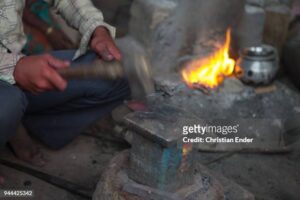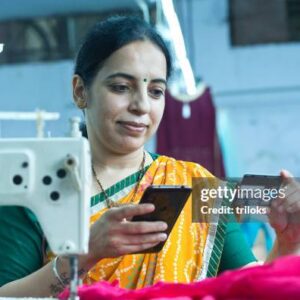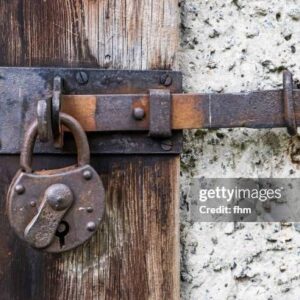
( Note – In this series with sub-heading ” Sketch of,” each contribution of written contents with a separate main heading, is supposed to be complete in itself. Though, if read one after another or randomly, then it would give an impression of a long story, strung into a thread. This effort is given to make reader enjoy every part by itself.
As I already have mentioned in this series of “ Sketch of,” every village community permanently owned its own barber, carpenter, black-smith, potter and other sort of artisans as denizen, who dwelt in the same village with family. All they were paid of their services rendered, in shape of “barter.” Mainly, seasonal harvest products, though rarely a hard cash as remuneration. In the same tradition, my village had had a ” black-smith cum carpenter,” as an artisan, named Jagadari leader. Often, mere reference of “leader’ in the village was enough to know that it’s being talked about Jagadari. In fact, he was an aspirant to become a local leader.
Inheritance of Jagadari
Although in conventional Hindu community of the village, that was fabricated on caste system, his backward caste status destined to station him on the lower wrung of the social ladder. But somehow, he was determined to fulfill his cherished desire. There existed some factors helpful to enjoy his this desire. First was, the parental house of his better half been here in the village since long. The reality was, he was married to the only daughter of long owned “black-smith” of the village i. e. his father-in law. His father -in- law, had passed away long back. Now he inherited his vocation. After the demise of his father-in-law, he had shifted to this village, in search of bright prospectus from his original distant located birth place.
He earned a conferment of ” Home installed son-in-law.” In vernacular he was “Ghar damaad.” This simply mean, a man who after marriage been shifted to the house of his “father-in-law,” and permanently staying there. Now, he held the “seat” of permanent artisan of the village community as a denizen.
His importance
The village social system was chiefly agriculture based and utensils and tools needed for agricultural purposes, could not be prepared without the help of his skill. Be it a wooden plough, its iron coulter, hoe or spade or whatever tool it be. All were prepared in his “work-shop,” and as an outcome of his skill only. Besides, that was the time, when tin roofed houses were in vogue. He too had an expertise in preparing wooden framework that helped sustain the tin-sheets’ roof and further he too was a skilled hand to fix the tin-sheets over this frame.
The significant factor
But the significant factor was, his holding the status of “installed son-in-law.” At that period of time, the status of “son-in-law” earned a great respect in the eyes of people of old generation. In village community, the “son-in-law” of any family in the village was treated with honor in entire community, without considering the social status of the family. He was a permanent denizen of the village with this status, that helped enjoy him some respect. At that time, despite the “caste barrier” in social system, son-in-law had this advantage over others.
The reason behind was, the daughter of a family in the village was treated with a respect, as if, she was the daughter of every family in the community. Indubitably, the husband of every daughter of the village was destined to earn a respect suo moto. By virtue of this, to some denizens he maintained the relation of “brother-in-law,” to other younger one, he was an “uncle'” and in all probabilities to older people, he was a “son-in-law.”
The funny tradition
In our Indian tradition, there prevails a custom. People who maintain a relation with some one as “brother-in-law,” are given to become frivolous with him in chatting. This custom often permits to pass dirty comments, which otherwise can’t be digested in a decent relationship. Even, the man holding the status of “brother-in-law” is given an advantage over others to initiate such type of frivolity. Likewise, the other party is at liberty to retort in the same pattern.
although, owing to his lower status in the “social ladder”, Jagadari evaded to initiate such frivolity. But, if the youth of upper caste happened to put him to some frivolous comments, in retort he always enjoyed the liberty of his status of “brother-in-law”. It was his acumen in a way, that soothed every one.
Predilection to become a leader
The prediction to become a leader rooted inside him deeply. During the entire session of his diurnal activities, he remained engaged in his work-shop. There he toiled hard in carpentry or black-smith work, barely clad and bathed in sweat the whole day. But with the fall of evening, he would regularly take a bath and then attire himself in the costume of a Congressman. For the purpose, he always had in possession some pairs of Indian Kurta (shirt)- Pajama and Gandhi cap of Khaddar cloth. All in classic white hue.
He was a frequent visitor at evening time on the village-square, when so many other denizens too happened to gather there in a routine way. At the square, he was to be received with double meaning epithets, as token of welcome gesture. There he too would repartee with the possible presence of mind. On the only “tea- shop” of the village square, he in a routine would sip a “glass” full of tea ( till that time the concept of cup-plate were not introduced in the hinterland.) After that, he was to proceed on his bicycle to the next near by local bazaar located at some km distance.
His next destination
There his destination was the “Licensed country liquor shop” in the out skirt of the bazaar. there he was certain to find a few other denizens of the village as a regular visitor of the liquor shop. That was the time, when consuming of liquor was considered an evil thing in the village community and all around. The consuming of liquor was considered as a permanent evil of low caste community and as a hobby of Royal families with substantial land holding. The concept of English wine was confined to main city people only. No facility of foreign made liquor was available in village side (End of the Part 1. )- Penned by — Vinay Pharasi …..


